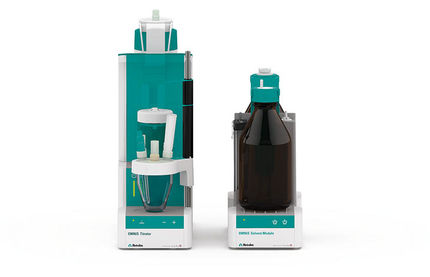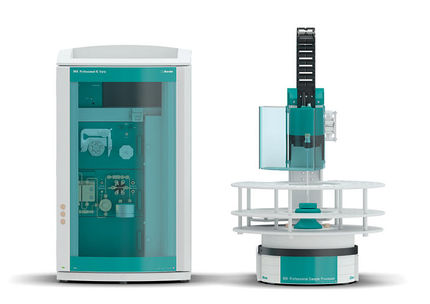To use all functions of this page, please activate cookies in your browser.
my.chemeurope.com
With an accout for my.chemeurope.com you can always see everything at a glance – and you can configure your own website and individual newsletter.
- My watch list
- My saved searches
- My saved topics
- My newsletter
Fermi gasA Fermi gas, or Free electron gas, is a collection of non-interacting fermions. It is the quantum mechanical version of an ideal gas, for the case of fermionic particles. Electrons in metals and semiconductors and neutrons in a neutron star can be approximately considered Fermi gases. The energy distribution of the fermions in a Fermi gas in thermal equilibrium is determined by their density, the temperature and the set of available energy states, via Fermi-Dirac statistics. By the Pauli principle, no quantum state can be occupied by more than one fermion, so the total energy of the Fermi gas at zero temperature is larger than the product of the number of particles and the single-particle ground state energy. For this reason, the pressure of a Fermi gas is nonzero even at zero temperature, in contrast to that of a classical ideal gas. This so-called degeneracy pressure stabilizes a neutron star (a Fermi gas of neutrons) or a White Dwarf star (a Fermi gas of electrons) against the inward pull of gravity. Product highlightIt is possible to define a Fermi temperature below which the gas can be considered degenerate. This temperature depends on the mass of the fermions and the energy density of states. For metals, the electron gas's Fermi temperature is generally many thousands of kelvins, so they can be considered degenerate. The maximum energy of the fermions at zero temperature is called the Fermi energy. The Fermi energy surface in momentum space is known as the Fermi surface. Since interactions are neglected by definition, the problem of treating the equilibrium properties and dynamical behaviour of a Fermi gas reduces to the study of the behaviour of single independent particles. As such, it is still relatively tractable and forms the starting point for more advanced theories (such as Fermi liquid theory or perturbation theory in the interaction) which take into account interactions to some degree of accuracy. See alsoCategories: Gases | Thermodynamics | Statistical mechanics |
| This article is licensed under the GNU Free Documentation License. It uses material from the Wikipedia article "Fermi_gas". A list of authors is available in Wikipedia. |







